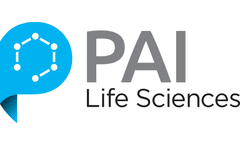Refine by
Health Organization Articles & Analysis
100 articles found
After rigorous testing and safety assessments, the vaccine received its prequalification by the World Health Organization, a significant endorsement of its potential impact. ...
Combined, allergic rhinitis (AR) and asthma affect up to 800 million people worldwide, according to the World Health Organization (WHO). Importance of recognizing and managing dust allergy symptoms Recognizing and controlling its symptoms is critical for immediate relief and long-term health and well-being. House Dust Mites: ...
Packaging like blister packs and pouches help prevent the spread of harmful germs that can make patients ill or exacerbate their symptoms. According to the World Health Organization, about 7% of patients in acute-care hospitals contract a healthcare-associated infection (HAI) while receiving treatment. ...
Over the past decade, cloud computing has undergone remarkable expansion. The collective revenue generated by AWS, Google Cloud, and Microsoft surged from $49 billion in 2018 to an astonishing $206 billion in 2022.[i] Projections from Future Market Insights indicate that the revenue from cloud services is poised to maintain an impressive average annual growth rate of 21%, reaching a staggering ...
When someone’s organs are weak, they require a new one to continue living. Organ donation refers to the supply of a healthy organ, gained from either a living or passed away donor, to help an individual requiring a transplant to improve their health condition. ...
Martin Caffrey said: "Many disease-causing bacteria have become resistant to a number of the drugs of choice used to treat them, and with antimicrobial resistance generally on the rise, the World Health Organization has been advising for some time that the post-antibiotic era coming soon, in an age where minor injuries and common infections can be fatal." ...
Limiting Residual Host Cell DNA: The World Health Organization (WHO), U.S. Food and Drug Administration (FDA), and European Pharmacopoeia recommend risk assessment based on cell matrix properties and product use. ...
Mental health is a critical concern for all companies. One in five individuals will experience a mental health problem during their lives, according to the World Health Organization. For many people, the workplace is where mental health problems first begin and/or become exacerbated. ...
Healthcare providers and patient advocates understand that infection prevention requires meticulous sanitation and sterilization of all facilities, equipment, and instruments used in surgery settings. According to the World Health Organization, post-operative infections contribute to patients’ spending extra days in the hospital, at a cost of some $900 ...
While open relationships can be problematic, combining the open standards FHIR and BPM+ Health with Medical Algorithms is a match made in heaven. This combination has the potential to revolutionize healthcare. To see why this statement is true, let’s first introduce the participants. ...
The World Health Organization states that sepsis is a condition affecting over 30 million people globally annually and is responsible for roughly 6 million deaths. ...
The World Health Organization in its report on Neglected Tropical Diseases has stated that there is overwhelming evidence to show that the burden caused by many of the 17 diseases that affect more than 1 billion people worldwide can be effectively controlled and, in many cases, eliminated or even eradicated. Leishmaniasis caused by Leishmania spp is one such ...
Many of these projects are supported by grants from governments, EU and non-profit health organizations. Collaborative projects include the development of vaccine candidates against Chlamydia, Covid-19 and ETEC. ...
The Clinical CRISPR Successes Are Stacking Up. But Where’s the Emphasis on Quality Control? In mid-September, Intellia released some promising data on two of their CRISPR-based therapeutics. These results are a significant milestone for genome editing and validation of its effectiveness in the clinic. However, the safety of CRISPR-based therapeutics has been a major concern and part of a ...
What about all this pharmaceutical industry waste generated in these COVID years? The World Health Organization (WHO) estimates that during the two long years of the pandemic, more than 140 million test kits have been commercialized, capable of generating 2,600 tons of non-infectious waste (mainly plastics) and 731,000 liters of chemical waste. ...
However, it can come with broader health consequences which may lead to an increased risk for hospitalization and death. ...
Quinine was once again introduced as an effective treatment option for malaria. In 2010, the World Health Organization (WHO) recommended quinine in combination with antibiotics like doxycycline, tetracycline, or clindamycin when antiparasitic medicines where not readily available. ...
But a fast, robust, and low-cost optical system is enabling point-of-care testing Driven by various social factors, a number of “old” diseases have recently reemerged to significantly threaten world health. Of particular concern is the increase in tuberculosis (TB), a highly contagious disease spread through the air when those infected cough, sneeze, or spit. ...
Misinformation can have a profound impact on public health, experts say that education might be the key to combating it. According to the World Health Organization (WHO), immunization saves millions of lives each year. ...
“Influenza is definitely back in the Southern Hemisphere,” said Professor Ian Barr, Deputy Director of The World Health Organization Collaborating Centre for Reference and Research on Influenza, during a recent BioMelbourne Network event. ...


















